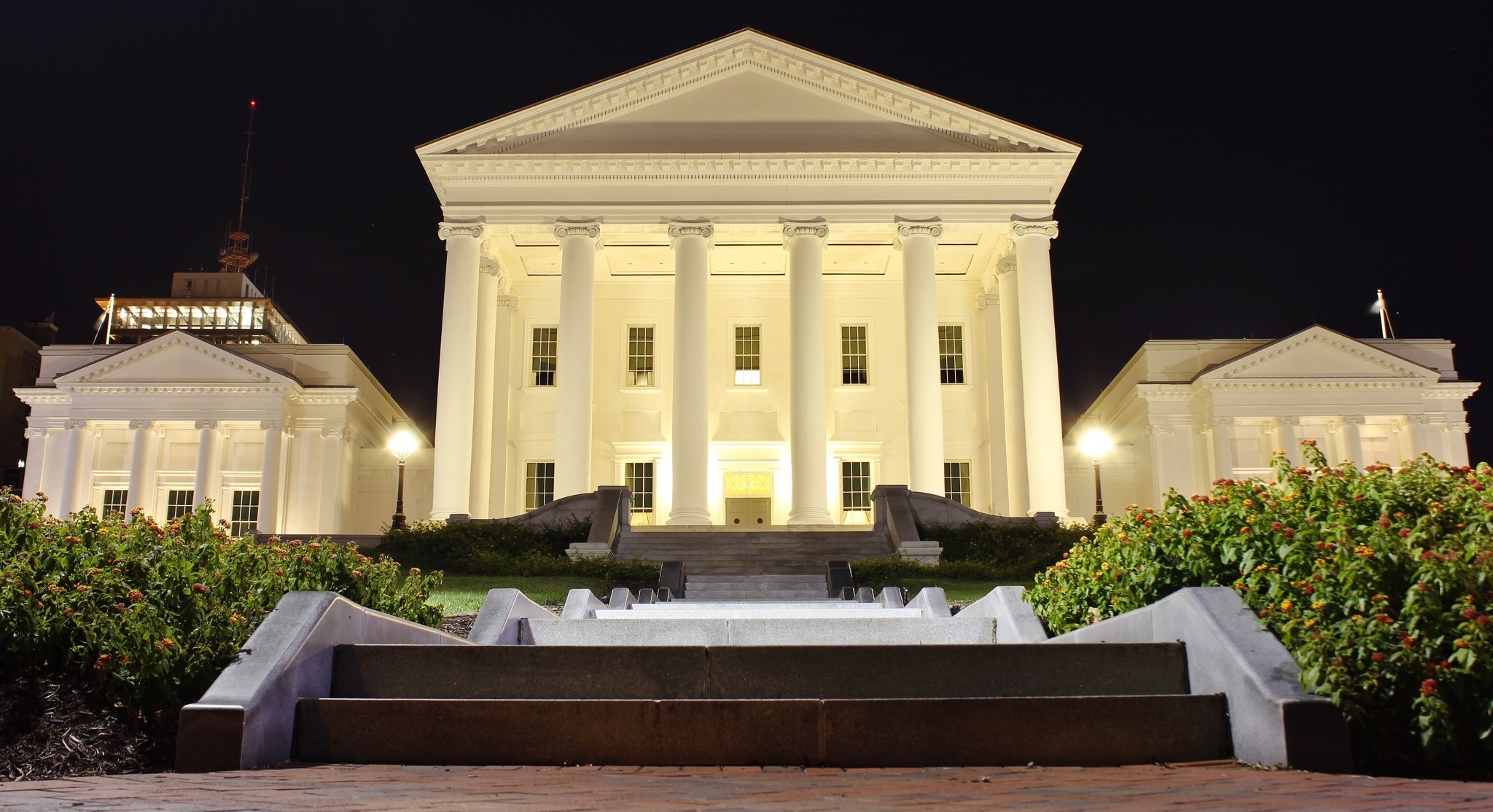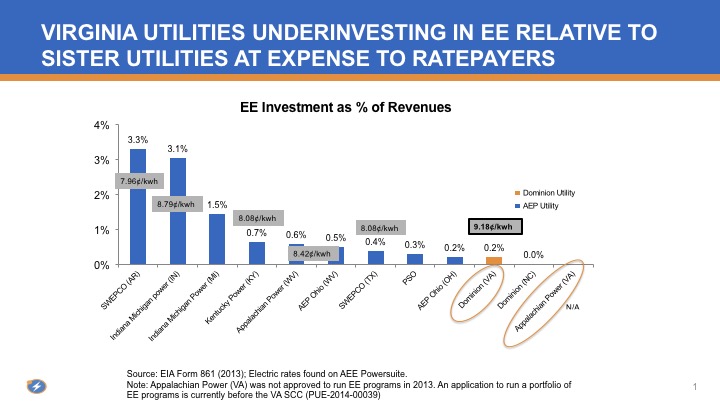 The Virginia General Assembly concludes its 2016 session this week with few bills to support the advanced energy industry set to become law. Several bills emerged to consider expansion of energy markets, particularly for renewable energy and energy efficiency technologies, but most have been pushed to a summer panel for consideration. Also this week, the Department of Environmental Quality will hold its final stakeholder meeting on EPA’s Clean Power Plan – an effort that could be more effective in creating market opportunity for advanced energy companies – on Friday, March 11. As the legislature and stakeholder meetings wind down, here’s what you need to know about the Commonwealth.
The Virginia General Assembly concludes its 2016 session this week with few bills to support the advanced energy industry set to become law. Several bills emerged to consider expansion of energy markets, particularly for renewable energy and energy efficiency technologies, but most have been pushed to a summer panel for consideration. Also this week, the Department of Environmental Quality will hold its final stakeholder meeting on EPA’s Clean Power Plan – an effort that could be more effective in creating market opportunity for advanced energy companies – on Friday, March 11. As the legislature and stakeholder meetings wind down, here’s what you need to know about the Commonwealth.
For nearly two decades, Virginia’s ranking as a good place to do business has been a mark of pride for decision makers at all levels. Campaign slogans are borne out of Virginia being open for business. Unfortunately, when it comes to advanced energy, the sign on the door reads “gone fishing.” While the General Assembly looks to remove regulatory barriers for other businesses in the state, there seems to be much less interest in taking down barriers to investment in advanced energy.
This year’s legislative session is a case in point. AEE, along with other allies, worked to advance three pieces of legislation that would have created new market opportunity for our member companies to deliver value to Virginia customers. Only one seems to have squeaked through, and that one emerged from the legislature weaker than it started.
HB 352 would have qualified more energy efficiency measures by utilizing multiple cost-effectiveness tests to better account for benefits to consumers and the electric grid. HB 1286 would have expanded the market for third party sales of renewable energy. Despite the fact that many other states already use similar regulatory frameworks, the General Assembly failed to move forward either of these commonsense policies during session.
Rather than consider a package of advanced energy initiatives, Delegate Terry Kilgore and Sen. Frank Wagner, respective chairs of the House and Senate Commerce and Labor Committee, chose to create a first-of-its-kind special interim panel to consider a wide range of energy bills affecting the advanced energy industry. Whether anything comes of that in 2017 remains to be seen.
On a positive note, one legislative proposal (SB 395 and its companion bill, HB 1053) to aid the advanced energy industry was signed into law by the Governor. This measure directs the State Corporation Commission to evaluate the establishment of uniform protocols for evaluation, measurement, and verification (EM&V) of energy efficiency programs. While making it more straightforward for energy efficiency providers to document energy savings under utility programs, the final bill is significantly watered down from its original text, which included a performance incentive designed to overcome the disincentive for utilities to invest in energy efficiency that reduces electricity sales.
Inaction by the legislature means that the market potential for advanced energy in Virginia remains largely untapped. In energy efficiency, the American Council for an Energy-Efficient Economy (ACEEE) ranks the Commonwealth 31st in the nation, in part because of unnecessary burdens to gain approval for efficiency plans. As a result, in part, Virginia utilities invest much less on efficiency than neighboring states, like West Virginia and Kentucky, while the state’s electricity rates surge higher than their neighbors’.

Virginia also lags behind on renewable energy. For example, while North Carolina boasts over $650 million in investment and over 5,600 jobs from solar energy, the Commonwealth musters just $15 million in investment and 1,800 jobs from solar.
One way the advanced energy industry could take off in the Commonwealth in spite of the legislature is the Clean Power Plan (CPP). For Gov. Terry McAuliffe, the CPP is his best remaining opportunity to declare Virginia open for business for advanced energy. AEE estimates the CPP as a $20 billion annual market opportunity nationally, if states get their planning right.
It’s not just investment that’s at stake, either. As analysis utilizing AEE Institute’s STEER model for Virginia shows, implementing the CPP would have minimal impact on electricity costs in Virginia, and could even provide savings for ratepayers, compared with projected energy costs in 2030, with energy efficiency and renewables emerging as lowest-cost compliance options.
Even in the wake of the Supreme Court’s decision to stay the CPP while challenges are pending in court, Gov. McAuliffe took two actions to demonstrate his commitment to using the rule to move Virginia’s electric power system into the 21st century. Post stay, McAuliffe announced that the DEQ would continue its stakeholder process to comply with the EPA rule. Then, just last week, the Governor vetoed SB 21, which would have given the legislature the power to approve DEQ’s plan before the agency sends a plan to EPA, citing a breach of constitutional powers.
When it comes to Virginia’s energy future, the Commonwealth stands at a fork in the road. One path yields to the resistance to a new Virginia economy by sticking with the energy technologies of the past – the direction seemingly desired by the General Assembly. The other, a path less traveled in the Commonwealth, could make Virginia America’s best place to do business for advanced energy, because it embraces a future of secure, clean, and affordable energy. Let’s hope Gov. McAuliffe leads Virginia down the road less traveled.
Last week, AEE released our annual Advanced Energy Now 2016 Market Report, which describes the full size and scope of this $1.4 trillion industry both in Virginia and around the world. Click the button below to download the report!
